“Any agent of any background can join,” says Gai Spann, co-founder of the Association of Black Travel Professionals.
If there’s one thing to remember about ABTP, it’s that the organization is truly inclusive. And another: It’s not just for travel advisors.
Veranda Adkins, Shawnta Harrison and Spann founded ABTP in late 2020. The idea for the organization wasn’t born out of longtime friendships between the three co-founders, as commonly thought. Harrison and Adkins first met in a Facebook group in 2017 and later connected at an industry awards show in 2018, and Spann was Harrison’s BDM when she worked for Apple Leisure Group Vacations. They met in 2019 to talk about goals for growing Harrison’s agency. Through separate conversations between the three of them, they came together to establish the organization.
ABTP co-founders
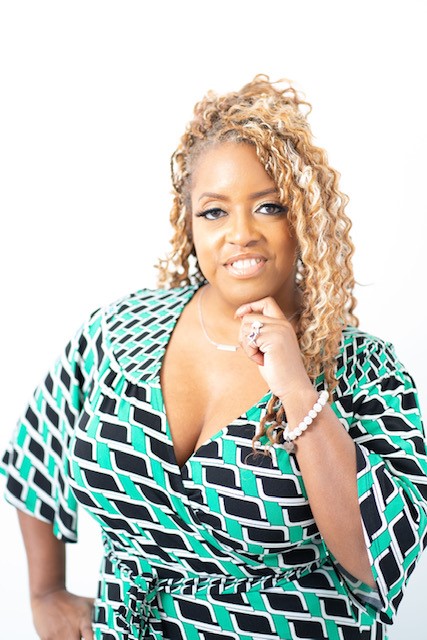
Veranda Adkins
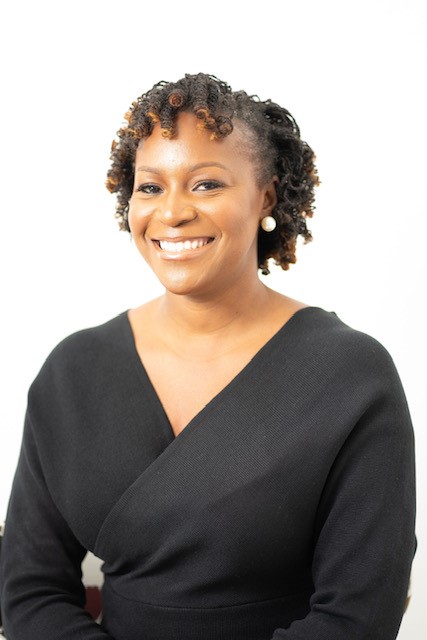
Shawnta Harrison
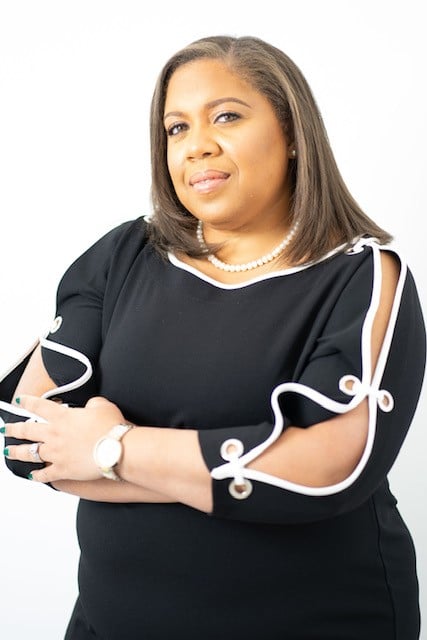
Gai Spann
Courtesy of AJay Thomas Photography
All three co-founder have their own perspective on why they saw the need for the ABTP, but they all believe in two things: There was a need in the industry for an organization to elevate Black travel professionals, and they were the ones to fulfill it.
Here’s more of their story, in their own words.
What was the spark that led to the creation of your organization? Was there a notable event or conversation that made you realize the need for this support in the industry, and that you were the ones to provide that support?
ADKINS: I worked for Travel Impressions for 12 years and was not seeing a lot of Black agents at events, and then once I switched to the travel agent side, I noticed it even more. I was always only one of four or five Black agents at awards shows, and it was always the same ones and I would wonder, “How do we get more people who look like me here and not just here at the event, but onstage?”
HARRISON: Veranda and I met in-person at an awards show and I was invited to the awards show, but just as an attendee. I was not receiving an award. So, she and I had several conversations like, “How did you win?” or “How did you get onstage?” Even for this particular awards ceremony, I was booking this supplier but I had never had a conversation with my BDM about it. I didn’t have any information [about it] and Veranda and I had the conversation, she shared the information with me, “Well this is what you need to do, just make sure you’re recording your bookings, make sure you’re doing this, make sure you’re doing that.” She was very open and honest with me, not withholding information that would make sure I would be recognized for what I was already doing.
The second “why” is that I attended a couple FAMs and when I was going about trying to promote the hotels and properties to my clients, I would go into the MediaValet for images for the suppliers and the hotels and there were very little images of and representation of people who look like me. And 95% of my clientele is people who look like me. To be [trying] to market something to someone and not be included in the marketing materials kind of bothered me. So, I reached out to my BDM. He told me there were images, but I couldn’t share them publicly. I could only use them for certain things within my organization, and that didn’t sit right with me. So that prompted me and Veranda to have that conversation and to have that conversation with Gai.
SPANN: We have similar experiences. I was a BDM for Apple Leisure Group Vacations. Before that, I was a travel agent for about 14 years and just like they’re saying, whenever there was an event, I just noticed that there were not a lot of people of color.
I don’t think it’s a malicious issue. I think people say, “the reason people get awarded is their numbers because they produce,” that’s not really it. I think it’s still a lack of connection and a lack of information transfer.
That’s why I came to Veranda and Shawnta and said that we need to create an organization where we can call all of these people to the table and be able to share this relevant information so that we can have more people of color recognized and also make sure that they have their business together [in terms of] booking and knew how to book, and knew how to manage their company on the business side as well.
What can industry organizations, host agencies, tour operators, even us here at VAX, do to elevate and support Black travel advisors and Black travelers?
ADKINS: There are always so many programs for top sellers or people on the rise, but until you get there, you don’t get any recognition. And you can’t get there until you understand how to get there. It’s a Catch-22. That’s one of the great things about ABTP. Since we’ve been in existence, several organizations have reached out to us, saying “Hey, I’ve been looking for a way to get in touch with Black travel professionals, can you help me?” So that’s one of the great things about us being here and a way for suppliers to get involved. Reach out to us and say “Hey, what can we do? Can we be a part of your organization?”
SPANN: There aren’t that many Black BDMs. There aren’t many Black managers. Not many Black VPs. Not many Black presidents. Not many Black CEOs at travel companies. So, when you’re in a room and you have your leadership of your company trying to figure out what to do, who are you asking, who can you ask? One of our goals of the organization is that we’re trying to build both sides, we’re trying to build relationships with suppliers and hold them accountable, too. Look for people of color to guide your ship.
I think there’s a good business reason for it. We’re just talking about our demographic right now: Black people. There is a historical tie. When you think back to Jim Crow laws and the [Negro Motorist] Green Book, the guide put together in the ’30s (and used through the ’60s). A postman put together a collection of hotels, restaurants, amusement parks that were safe for and accepted Black people because at that time, everything was segregated. And Black people traveling through the country would be humiliated or embarrassed or even have their safety in question. So, he started the Green Book, which was a guide of safe places to go. And one of the things I didn’t realize is that, in this current day and age as a travel agent, we always get this question from our consumers: “How will we be treated there? Do they like Black people there? Do Black people go there?” To this day, we still have that DNA, that residue of “We’re not sure we’re going to be welcome in a place where we travel.” And I think that destinations, hotels and travel companies should try to understand where that comes from. And if they do, then they could take proactive steps to show that they are [welcoming].
Are there travel suppliers doing it right in terms of representing Black travelers and travel advisors?
SPANN: We’ve had some companies come to us […] like Hurtigruten. Right away, they came and wanted to be a member. Quark Expeditions did come to us to present to our group because to them, it’s a market that’s new and if you want to grow your business, you need to go where that growth is going to be, so come directly to the clientele.
Royal Caribbean has been doing a lot to get themselves in the right space for heading up this demographic in the new year. They’ve had a lot of success. Apple Leisure Group Vacations has come on board. American Airlines, Vacation Express, Delta Vacations, ID Travel Group, Emerging Destinations, Wanderlust. Miami’s tourism board is on board along with Los Cabos Tourism Board, KHM Travel Group, Crissa Hotels in Jamaica and NYC & Company.
I think they deserve the recognition.
HARRISON: Our relationships with our partners are not strictly transactional. They are supporting us because they believe in what we do, and it’s not solely based on the number of sales our members are bringing to them.
Who is the right-fit travel advisor for ABTP?
SPANN: Our organization is really for everyone. We use the word “professional” for a reason. We didn’t use the word “agent” because we do see the organization growing as an umbrella, so under that umbrella would be social media, could be content, could be journalism. It could be all of those things. We do have a strong focus toward travel agents.
We create what we call a safe space; we want people to be able to come and ask questions, we want people to be able to learn. So, if they have a lot of experience, we have [resources] for them and if they’re very new, we have [resources] for them as well. We run the gamut. Any agent of any background can join. It’s not like only Black agents can join.
ADKINS: It just goes back to our philosophy of, if you look around the room and there are not Black agents there, then that’s the problem. We want other agents of other ethnicities to be a part of ABTP so that they can start sharing that narrative, because sometimes they’re in a room where we aren’t.
One of your goals is to quantify the revenue impact of Black travelers and travel advisors. How is that going?
ADKINS: We’re working on getting our own ABTP certification number so we’re still working through the processes for that. We’ve been talking to some of the suppliers who have come on board now so that our agents can have their own number if they don’t have one of the other accreditations, or they want to move away from one of the other accreditations. So that will be big in helping us quantify those numbers. Like Shawnta said [earlier], it’s not just about the transactions, but we want people to understand. A lot of value comes with relationship building and I think that will show the impact we have on the travel industry, just getting that number out there.
SPANN: It shouldn’t be transactional, but we do want to show proof eventually, and every supplier asks for numbers so we know we have to do that, but we don’t want the emphasis to solely be on that because we are growing.
Have you been busy planning your conference this November?
SPANN: Yes! Our host hotel is the S Hotel in Jamaica. The focus of the conference is really on leadership, that’s why it’s [called] the Beyond Travel Leadership Forum. It’s focused on Black business. We are not having a typical conference where all the agents are at one hotel in a conference room, we’re actually going out into the community in Jamaica and we’re having some of our events in local venues. You know, as many times as I’ve been to Jamaica, I’ve never been to Montego Bay, not the beach but the town of Montego Bay. They have a civic center and it is beautiful. They have a museum and they talk about the history of Jamaica and the history of Rastafarianism, and we’re going to have one of our sessions there. We’re also going to have some local events where we go off-property, like an excursion where we’re going to go to a local village of artists. We’re going to have what we’re calling a Barefoot Marketplace on the beach and our sponsored vendors will have booths there, but we’ll also invite local businesses to be there.
Real customers want to get off the resort sometimes and they just don’t know where or how to do it and I think bridging that gap to show that yes, you can stay on the resort, but you can also one night go to dinner at a local restaurant or get a driver to take you to some other sites that are always so planned, with the bus. Get out and have some real experiences and bridge the gap with the people of Jamaica. So, the focus is going to be well-rounded in that way.
We’re travel people so we like to be out. It’s very movable. All the sessions are at different places, so the whole time, people will be able to experience and see different parts of Jamaica. We’re real excited about it.
Any closing thoughts?
SPANN: This organization was a longtime coming. And we’re looking for support from everywhere. We want people to talk about us, to share us, join us, and we want sponsors to come on board.
Learn more about the Association of Black Travel Professionals at abtprofessionals.org.
Originally appeared in the summer 2021 issue of The Compass Magazine.


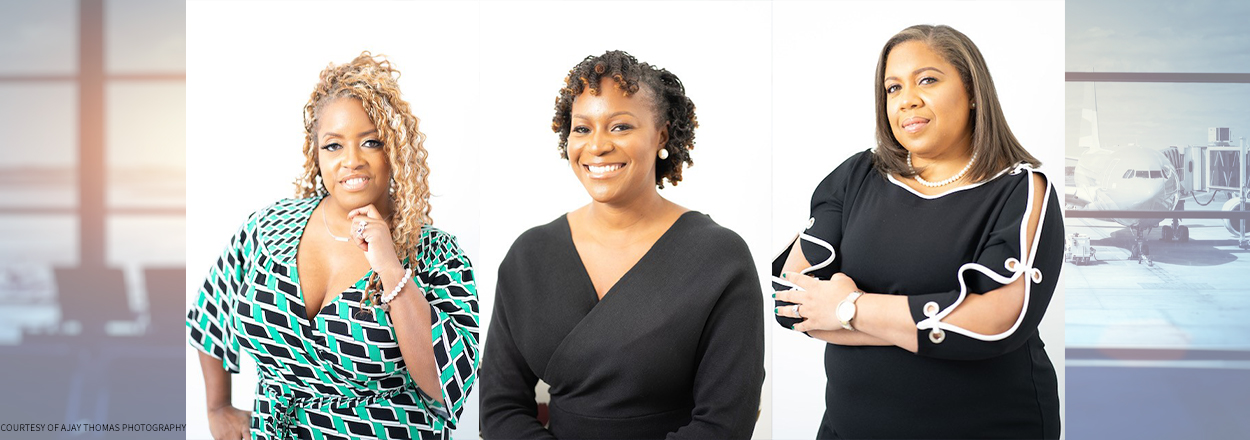


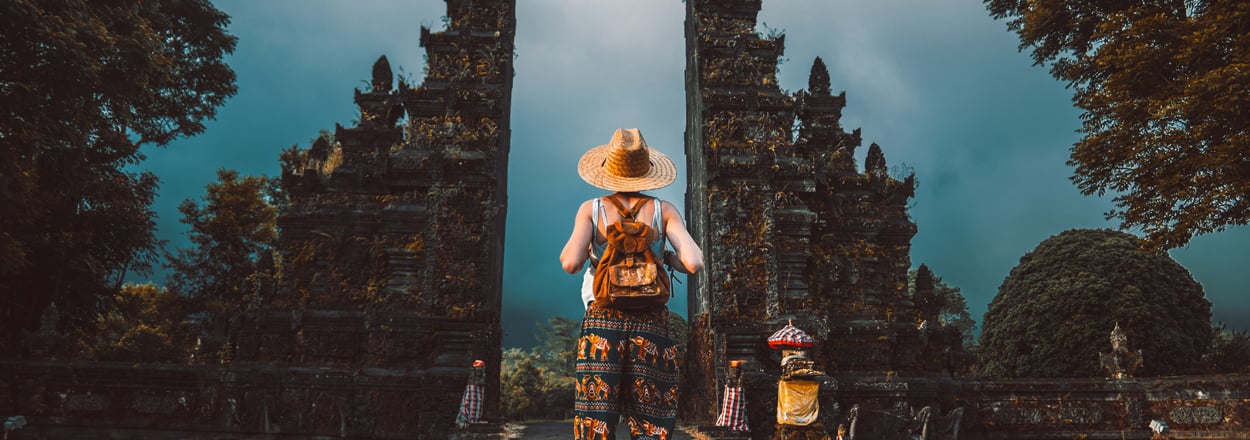
comments